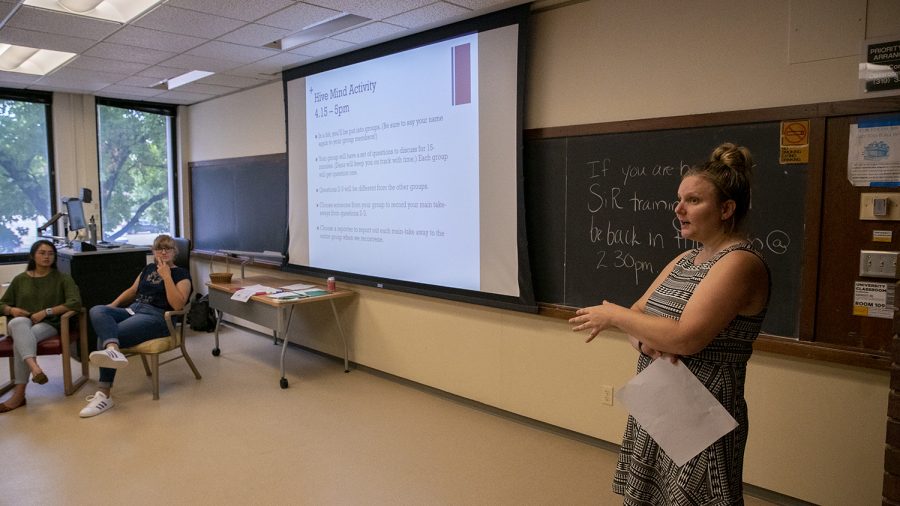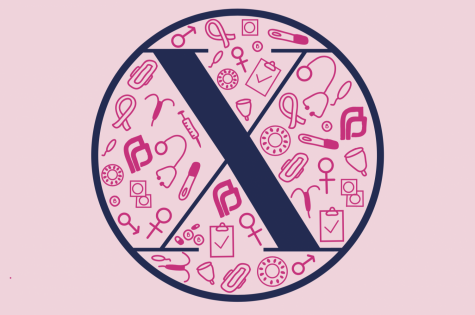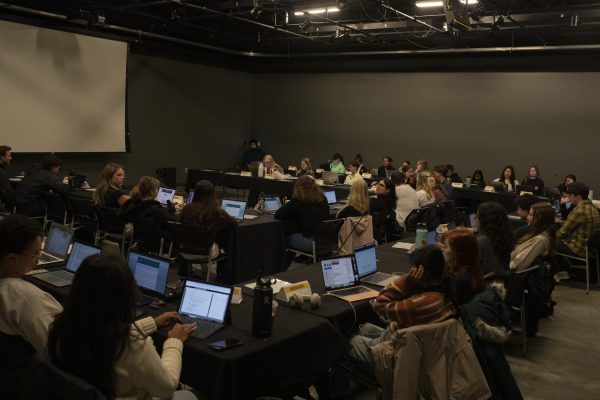Rhetoric embedded tutors aim to be improved resource for students
Rhetoric classes are debuting an improved Success in Rhetoric program consisting of peer mentors attending the rhetoric classes and close contact with an assigned instructor for a personalized experience in an attempt to boost low retention rates.
Volunteers in the Success in Rhetoric (SiR) program are seen on on Wednesday, August 21, 2019. The program consists of peer mentors attending the rhetoric classes and close contact with an assigned instructor for a personalized experience in an attempt to boost low retention rates.
August 28, 2019
The embedded tutor model for the University of Iowa tutoring program, Success in Rhetoric, will officially continue with an emphasis on peer tutors working exclusively with assigned professors in an effort to boost retention rates.
Founded in 2017, Success in Rhetoric is a partnership between the UI Department of Rhetoric and Academic Support and Retention. The fall 2018 preliminary model responded to low attendance in tutoring, which program leader Dana Thomann attributed to how differently each professor teaches the course.
Thomann said a large benefit of the program is bridging the gap between nervous first-year students and instructors when it comes to initial contact.
“Faculty members find that when students do come to them with questions, they’re not the questions that they get asked a million times,” Thomann said.
Depending on the participating instructor, Thomann said roles of the peer tutors include teaching small lessons or hosting workshops.
“They get a flavor for what it’s like in the classroom and what major assignments are being assigned,” Thomann said. “Then, they hold outside office hours in the Writing Center.”
Rhetoric is a required course at the UI that aims to introduce skills essential for first-year students. According to a report from the 2017-18 Academic Support and Retention at the UI, only 59 percent of students who received a D, F, or withdrawal in Rhetoric continued schooling at the UI for a second year.
RELATED: Supplemental instruction at the University of Iowa assists in retention and degree progress
Although many other factors contribute to a student not returning, Academic Support and Retention Director Mirra Anson said, those who fail rhetoric are less likely to return.
“Rhetoric is such a foundational course,” she said. “We recognize that that’s an area where we can maximize student learning and support.”
Despite the positive response from students and professors, Thomann said, challenges still remain, including the need to find consistent funding. She said the program’s goal is to pay returning tutors the same rate a Supplemental Instruction leader is paid at the university.
DITV: Breaking down the university’s changes to the rhetoric program
The University of Northern Iowa has provided a similar embedded program since 2010, seeing the retention rate rise to 85.6 percent for students enrolled in embedded courses compared with 79.6 percent for nonembedded courses, according to a report by the university.
UNI executive director of undergraduate studies Diedre Bucher Heistad said the UNI program has expanded to all first-year classes, and more than 85 percent of students attend a peer embedded course in their first semester.
RELATED: University of Iowa wrestles with grad, retention gaps
In the future, Thomann said, the Success in Rhetoric structure could be expanded to other gateway courses at the UI.
Thomann said Success in Rhetoric tutors will be installed in Peterson, Stanley, Currier, and Catlett Halls, and the hope is to increase the number of hours tutors spend in the Writing Center.
“The key benefit is simply having a second pair of eyes on student work in class,” said participating instructor Robert Peck in an email to The Daily Iowan. “Rhetoric is a course that demands personal attention to our students’ work, as many are, understandably, uncomfortable with the skills we practice.”




















